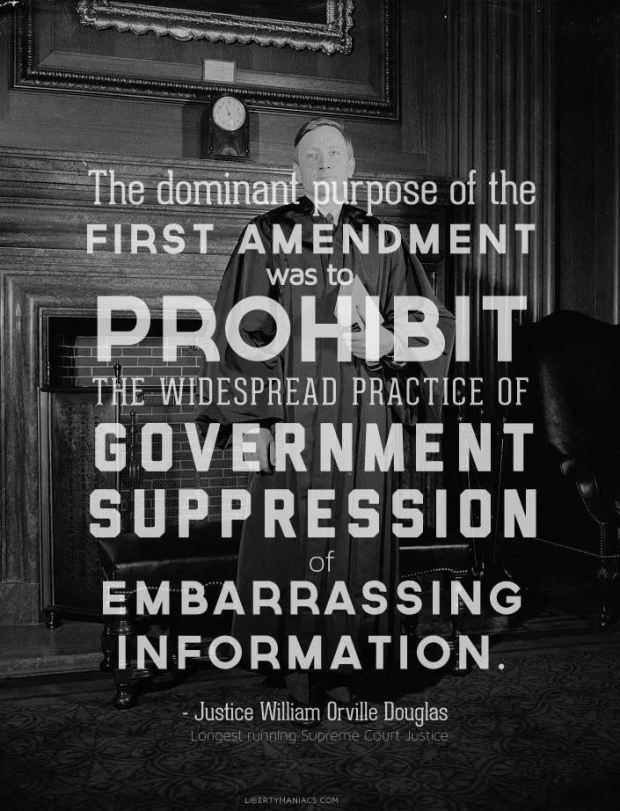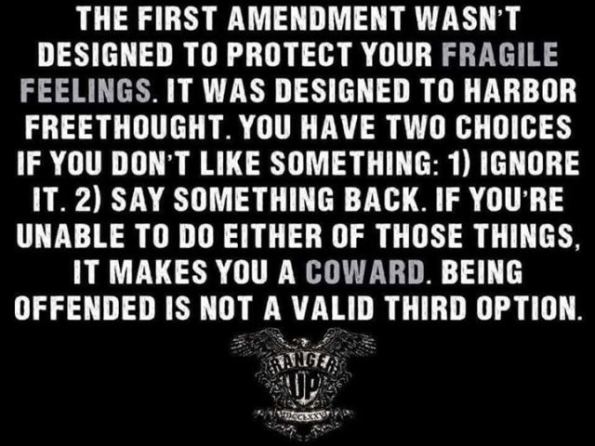Senate President Fann,
I understand you are taking time off from important business pending in the Arizona State Legislature with a plainly unconstitutional attack on the First Amendment by proceeding with the censorship of Senator Wendy Rogers.
When I heard about the censorship discussion I thought Nancy Pelosi moved to Arizona.
The First Amendment really was designed to protect a debate at the fringes. You don’t need the courts to protect speech that everybody agrees with, because that speech will be tolerated. You need a First Amendment to protect speech that people regard as intolerable or outrageous or offensive — because that is when the majority will wield its power to censor or suppress, and we have a First Amendment to prevent the government from doing that.
https://www.aclu.org/blog/free-speech/rights-protesters/protecting-outrageous-offensive-speech
The First Amendment makes no general exception for offensive, repugnant, or hateful expression.
In Snyder v. Phelps, the United States Supreme Court protected in an 8-1 decision the hateful speech of the Westboro Baptist Church — known for picketing military funerals with signs that read “God hates fags” and “Thank God for dead soldiers” — during a 2006 protest near the funeral of Lance Corporal Matthew A. Snyder, a Marine killed in Iraq. Federal courts even protected the free speech rights of Nazis, who in 1977 were denied a permit to march through Skokie, Illinois, a village where many former Holocaust survivors lived. (Although the Nazis prevailed in court, the march actually never took place.)
https://www.thefire.org/is-hate-speech-protected-by-the-first-amendment/
Does the First Amendment protect offensive ideas?
The First Amendment to the U.S. Constitution forbids the federal government from preventing someone from speaking or from punishing someone for something they’ve said. It was originally created to protect political speech and keep the government from shutting down newspapers that expressed dissent; however, over time the Supreme Court has interpreted speech to include marches, protests and other forms of expressive conduct. The concept also has expanded to cover hate speech and offensive conduct. This means that no matter how offensive someone’s ideas or how upsetting their imagery, the First Amendment protects their ability to be heard.
https://share.america.gov/why-protect-offensive-speech/
The First Amendment to the U.S. Constitution forbids the government from preventing someone from speaking or from punishing someone for something they’ve said. This means that no matter how offensive someone’s ideas or how upsetting their imagery, the First Amendment protects their ability to be heard.
- https://www.youtube.com/watch?v=gBSoq1WlA7A
- https://www.sovereignvalley.com/is-offensive-speech-protected-by-the-first-amendment/
The most important business that you have before you is preventing another election steal and Decertifying the 2020 election. I heard you echo the Speaker’s comments that there is no provision to accomplish that. That runs contrary to your previous statements, and I am sure there are many people—including me—who would debate you on that subject. Without accurate elections, paper ballots, and no machines counting the votes, we no longer have a Constitutional Republic.
I included two attachments which I hope helps you see the censorship of Senator Wendy Rogers would be unconstitutional.
Thank you,
Paul Papas

